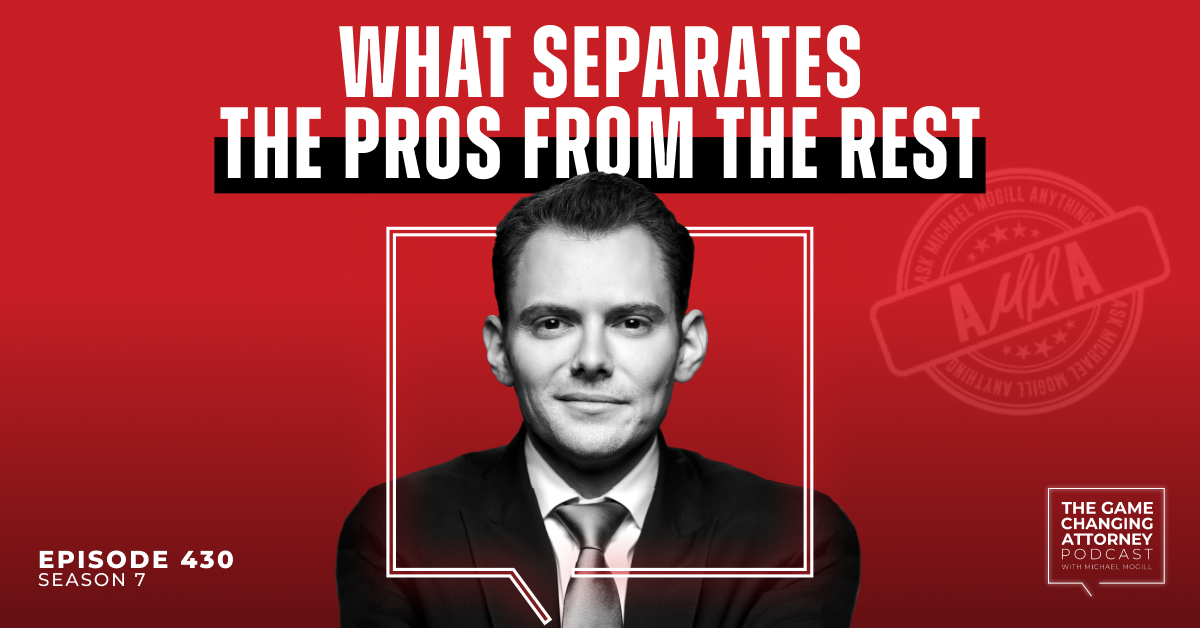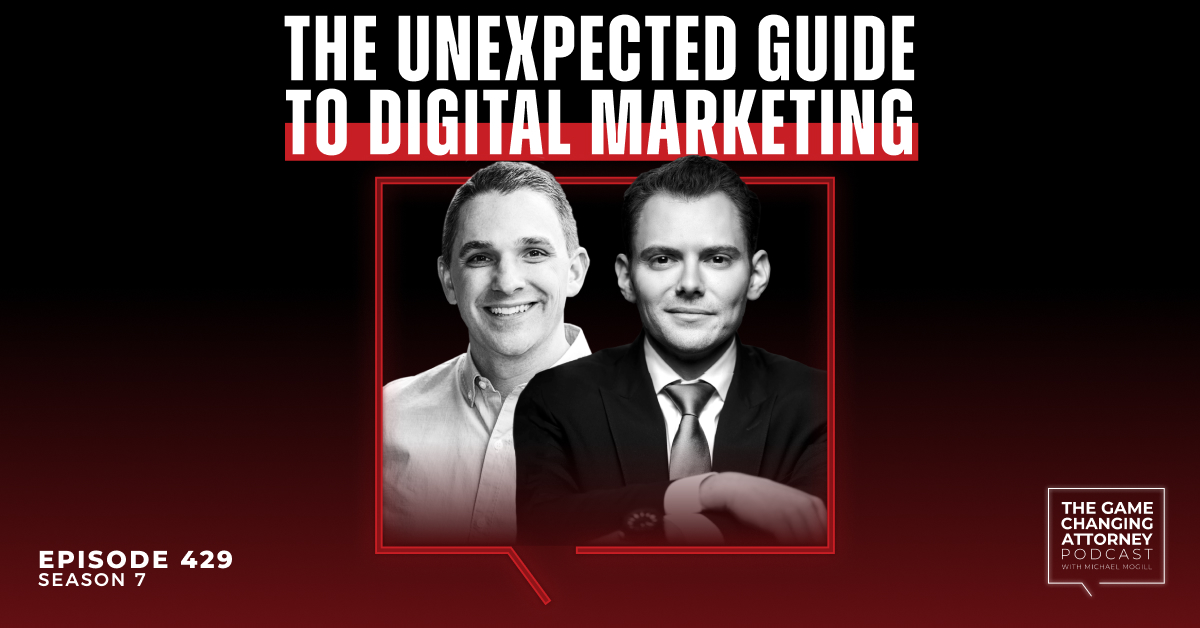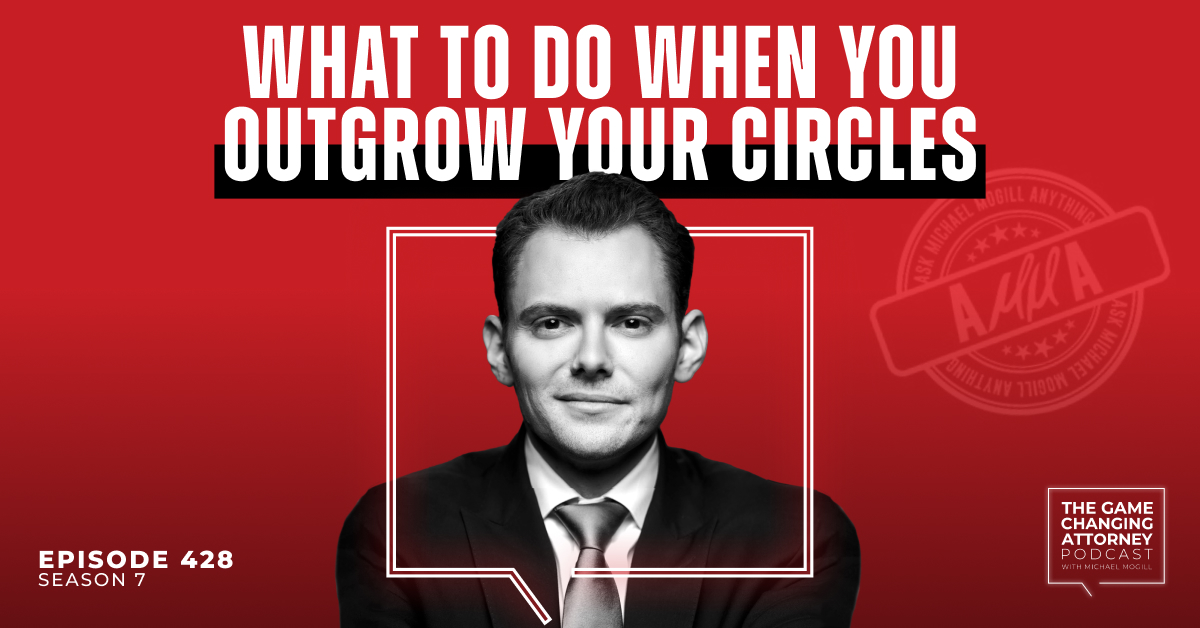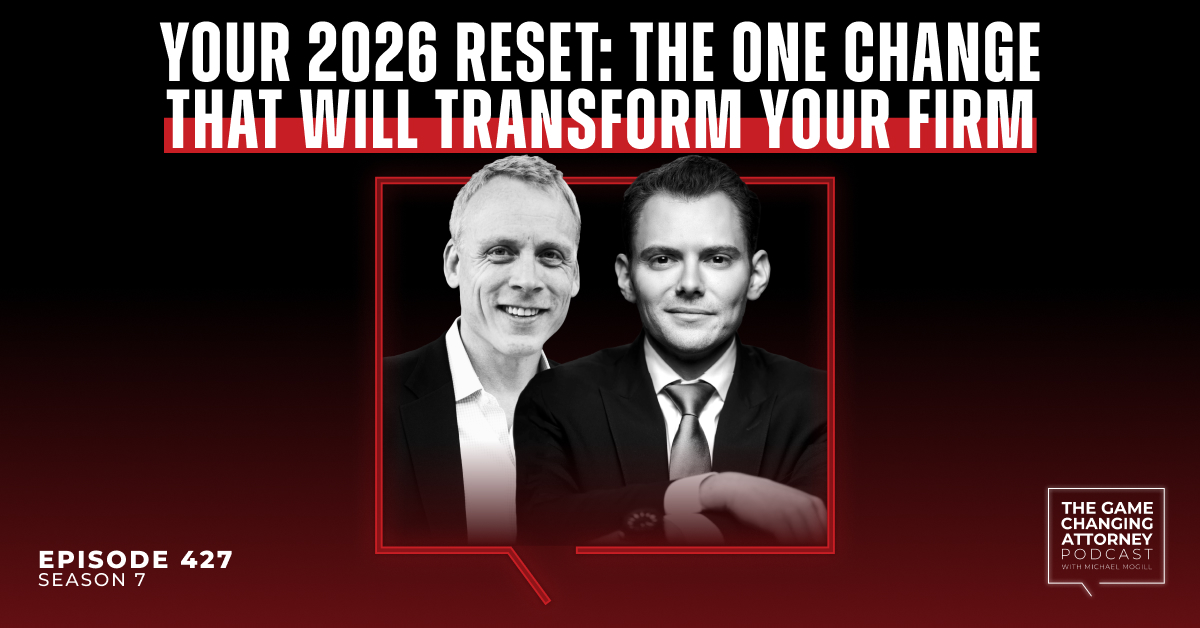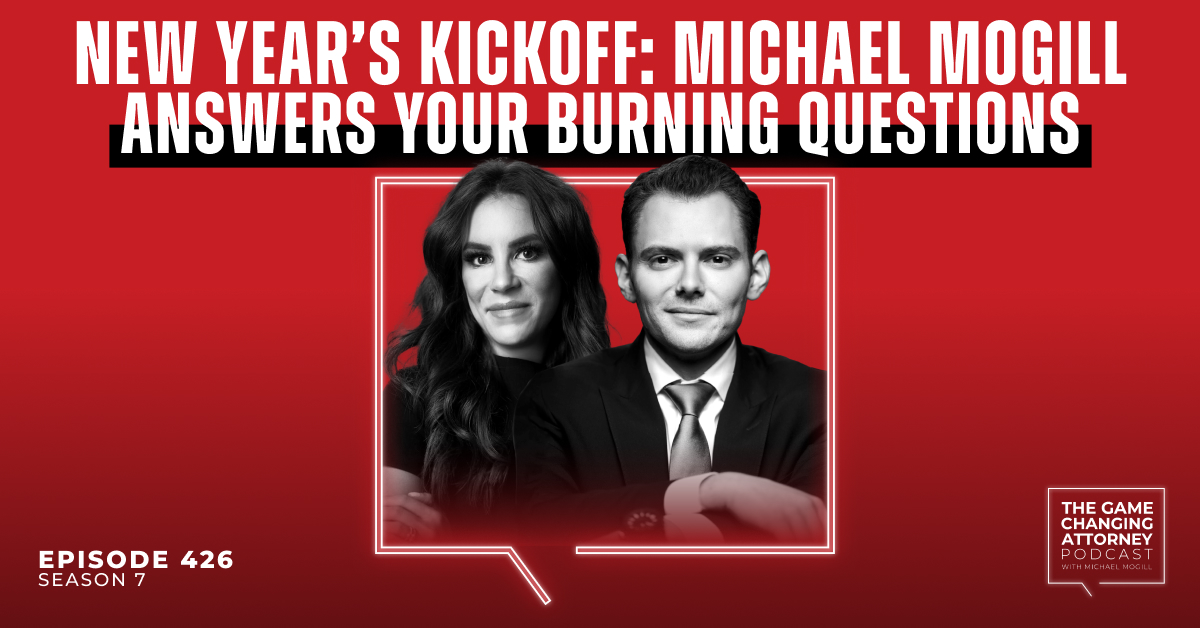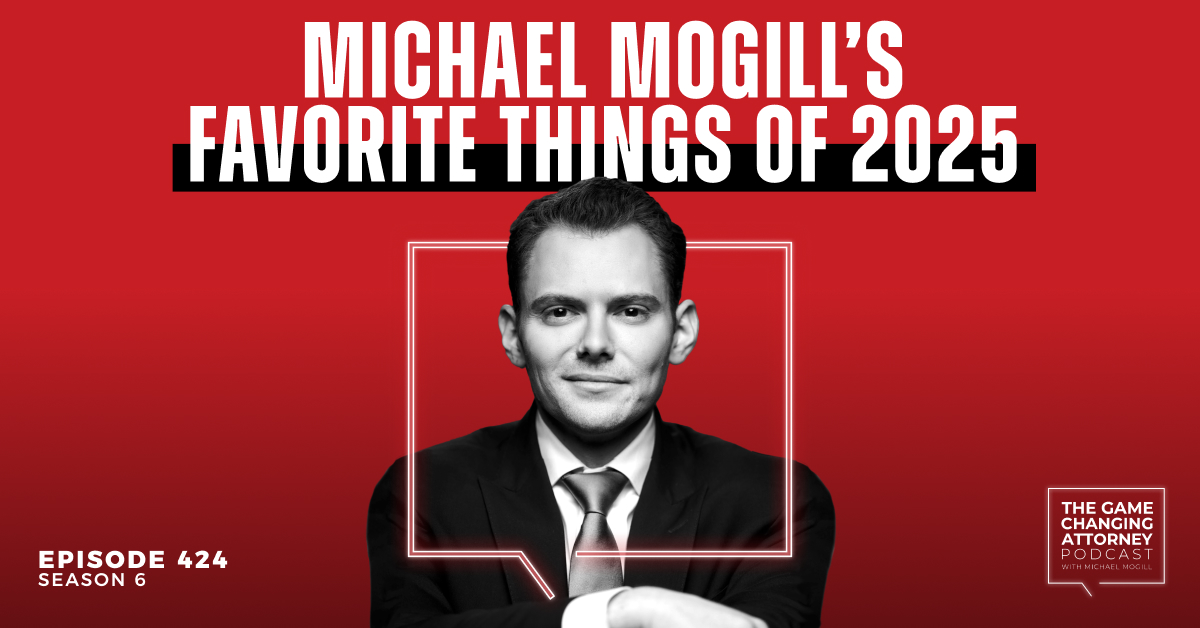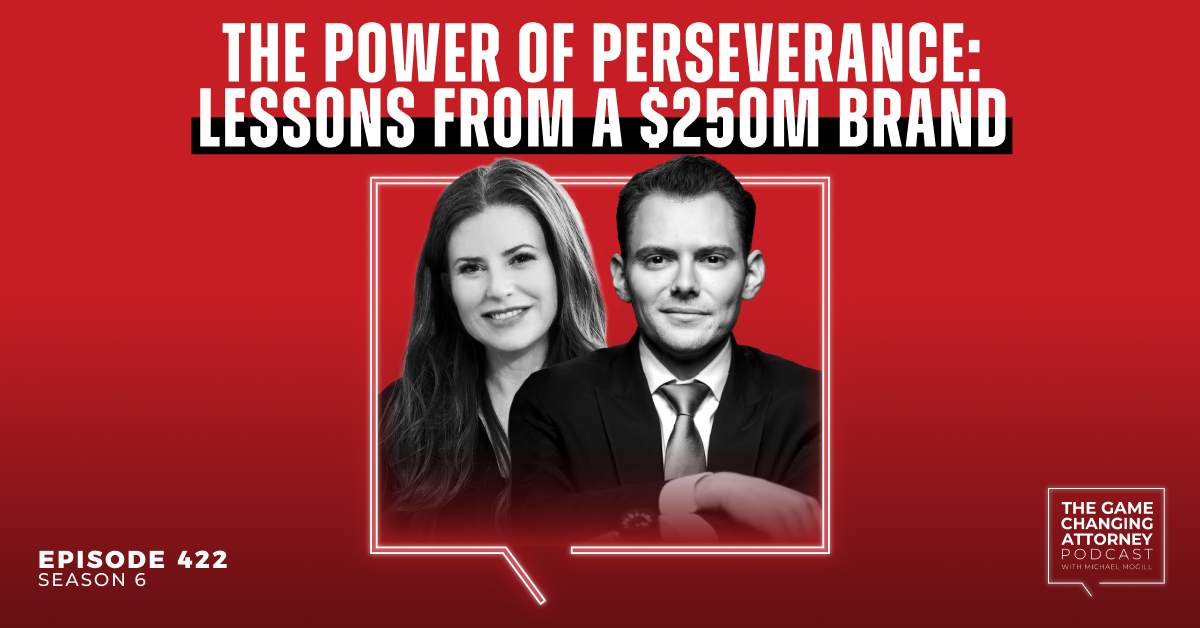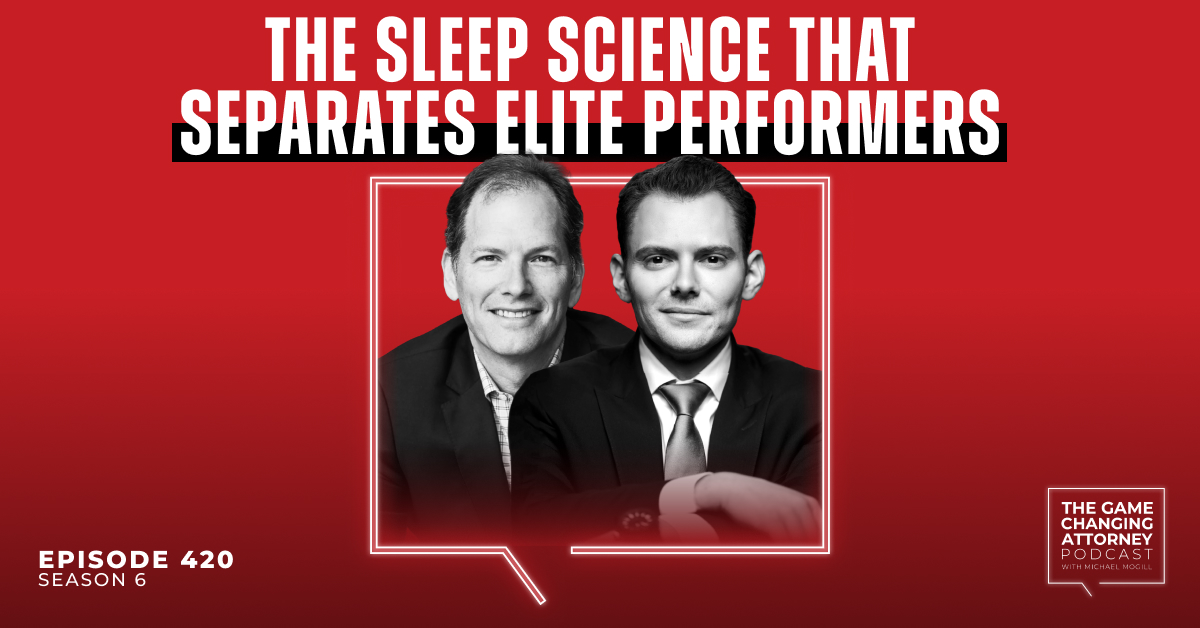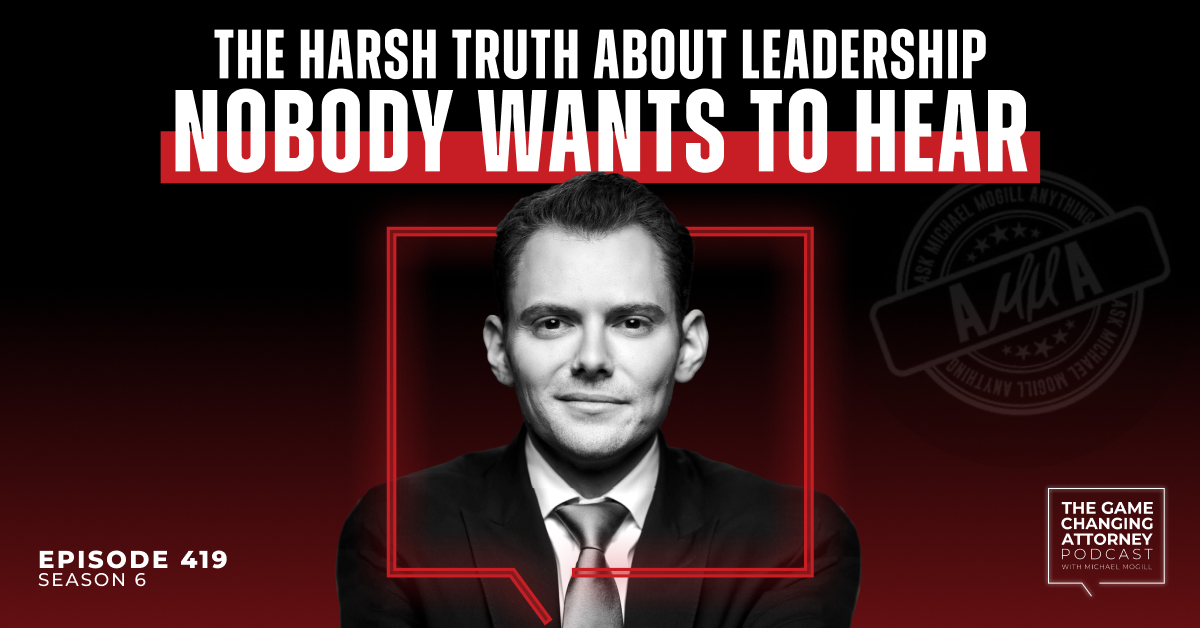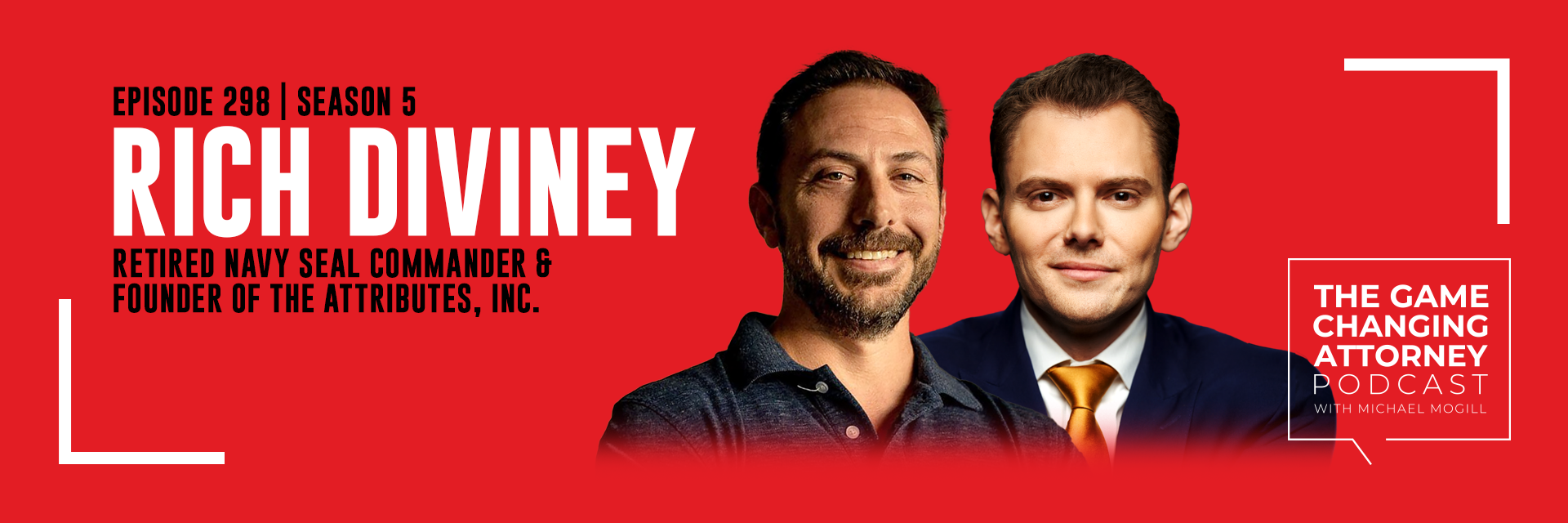
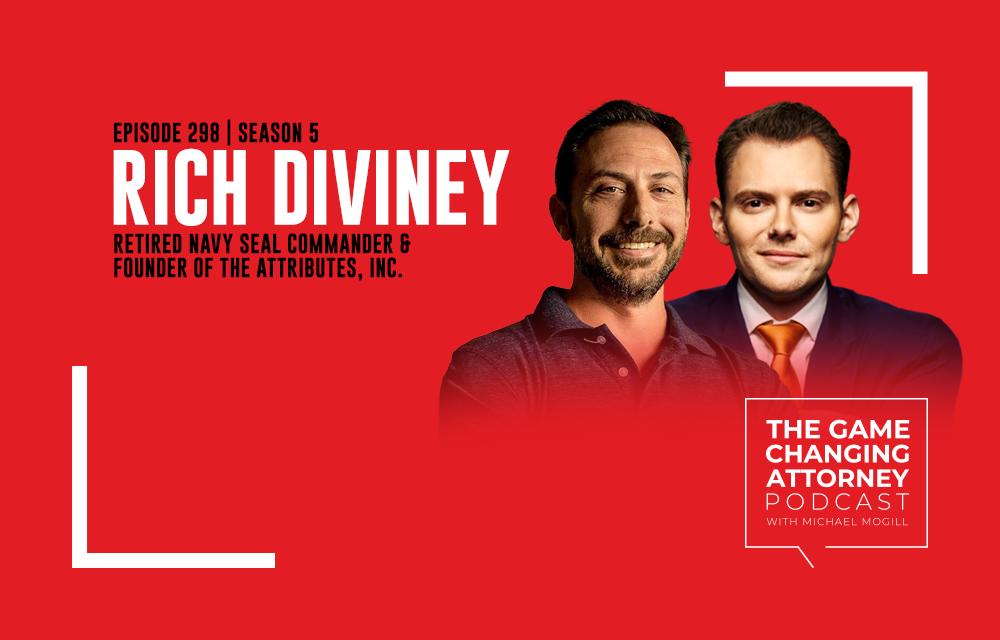
Episode 298 — Rich Diviney — The Fundamental Traits Navy SEALs Use to Excel
Are you truly prepared to shatter the limits of your potential and face the brutal reality of what it takes to dominate?
In this episode of The Game Changing Attorney Podcast, former Navy SEAL Commander Rich Diviney strips away the fluff and dives into the raw science behind what makes or breaks human performance.
It’s not about skills — those can be taught — but about the deep-rooted attributes that drive behavior in the heat of battle. From mastering fear to summoning courage, this conversation is not for the faint-hearted. It’s for those who understand that thriving under pressure is the only way to survive.
In this episode, you’ll learn:
- The undeniable impact natural attributes have on pushing you to elite performance
- How to rewire your brain and shape your destiny through neuroplasticity
- Why embracing fear is your only shot at unlocking real courage
This conversation isn’t about motivation. It’s about transformation. Brace yourself for a mindset overhaul that will force you to confront the truth about who you are and what you’re capable of becoming.
Listen & Subscribe
Show Notes:
Born to perform. “Attributes are inherent to our nature. We are all born with varying levels of adaptability, perseverance, discipline, and situational awareness. While these traits can certainly be developed over time through experience, you can observe them even in very young children. If you’ve spent time with kids, you’ll notice that some 18-month-olds are patient, while others are quite the opposite. There is both a nurture and nature element to attributes. They don’t dictate behavior but rather inform it, showing us how we will respond. This is why, if we overlook attributes when discussing performance, we miss a crucial aspect: how individuals perform when things don’t go as planned. That’s what sets apart regular individuals and teams from high-performing ones. The latter can excel not only when everything is going smoothly but also when facing challenges. Attributes help us understand how we operate in those moments, revealing our most authentic selves.”
The attribute that will change your life. “You can develop attributes, but not in the same way you would a skill. If you’re unsure whether you’re dealing with an attribute or a skill, ask yourself a simple question: ‘Can it be taught?’ If the answer is yes, it’s likely a skill; if no, it’s probably an attribute. For example, if you want to learn to shoot a pistol and hit a bullseye, I could teach you that in two hours. That’s a skill. But if you want to become more patient, I can’t teach you that. Developing an attribute, especially if you’re lacking in it, requires three things: first, recognizing you’re low in that attribute; second, having the desire to develop it; and third, finding environments that challenge and cultivate it. For instance, if you want to develop patience, you need to place yourself in situations that test it.”
Unlock explosive performance. “Sometimes, a person’s attributes may not align with their role, which can explain underperformance. By understanding these gaps, we can better match individuals to positions where their attributes help them thrive, and we can also identify the attributes we need to bring into the team. This approach allows for a deeper understanding of team culture and performance, ultimately leading to improved outcomes.”
Rewire your brain for success. “If someone is genuinely interested in developing a particular attribute for their role, it’s entirely possible. Our brains are malleable, thanks to neuroplasticity, which allows us to learn and grow. While this plasticity is more pronounced in younger individuals, it remains throughout our lives, meaning anyone can develop an attribute if they are motivated. For younger people, the process is faster. That’s why in the work we do with schools, we focus on informing students about attributes rather than labeling them. If they feel they’re lacking in a particular area, they are in a prime position to develop it.”
Fear is the key to true courage. “Courage is a fascinating attribute, as it only exists in the presence of fear. Without fear, there is no courage. When we talk about courage, we’re referring to how consistently someone steps into their discomfort and fear. This means that an anxious person could still be highly courageous if they continuously face their fears. Practicing courage involves deliberately stepping into situations that make us uncomfortable and then acknowledging the dopamine reward that follows, reinforcing the behavior.”
Face your fears. “Fear is a combination of anxiety and uncertainty. You can experience one without the other and not necessarily feel fear. For example, you might feel anxious about an upcoming presentation, but if you know the material and the audience, there’s no uncertainty, just anxiety. Similarly, you can feel uncertain without anxiety, as children do on Christmas Eve. But when anxiety and uncertainty combine, that’s when fear arises. In moments of fear, it’s helpful to break down what is uncertain and what is causing the anxiety. Focusing on what you can control helps reduce the uncertainty and allows for more logical thinking, preventing your fear from taking over.”
Optimal > Peak. “Many people chase ‘peak performance,’ thinking it’s the ultimate goal. However, peak performance is an apex — a point from which the only way is down. It often requires planning and preparation, like how a professional football player structures their week to peak for just a few hours on Sunday. In reality, what we should aim for is ‘optimal performance.’ Optimal performance means doing the best you can in the moment, whatever that may look like. Sometimes, that’s achieving a peak state, but other times, it’s simply pushing through and doing what’s necessary. Optimal performance allows for balance, including recovery, without wasting energy.”
You’re allowed to change. “Many men, myself included, begin with relatively low levels of empathy. As life progresses, we often experience growth in empathy, especially after getting married or having children. This growth happens naturally, much like how other attributes, such as competitiveness, can decline over time. I once spoke with a successful businessman in his 70s who shared that earlier in his life he had been highly competitive, which was exhausting. Eventually, he made a conscious decision to become less competitive, and now he feels more balanced. Life experiences can either develop or atrophy our attributes, depending on the choices we make.”
Supercharge your performance. “When considering attributes, ask yourself which ones could help you improve in your current role. These attributes may not be your weakest, but they could still benefit from development. It’s important to do introspective work to identify them. Additionally, use attributes as a language of performance for both yourself and your team. This will provide a clearer path to personal and professional growth.”
Attribute formula stops employee turnover. “We’ve seen great success in retention when organizations hire based on attributes. One company, for example, was losing six out of every 10 new hires. After adjusting their hiring process to focus on attributes, they improved retention to eight out of 10. The people they brought on board not only fit the company culture better but also performed more effectively from the start.”
What does being a game changer mean to you? “Being a game changer means helping people recognize and move toward their potential. Potential always lies just beyond the edges of what we know and what feels comfortable. As leaders, anything we can do to help those in our care — whether personally or professionally — stretch and grow is valuable. This helps them achieve things they never thought possible.”
Connect with Michael
- Text directly at 404-531-7691
